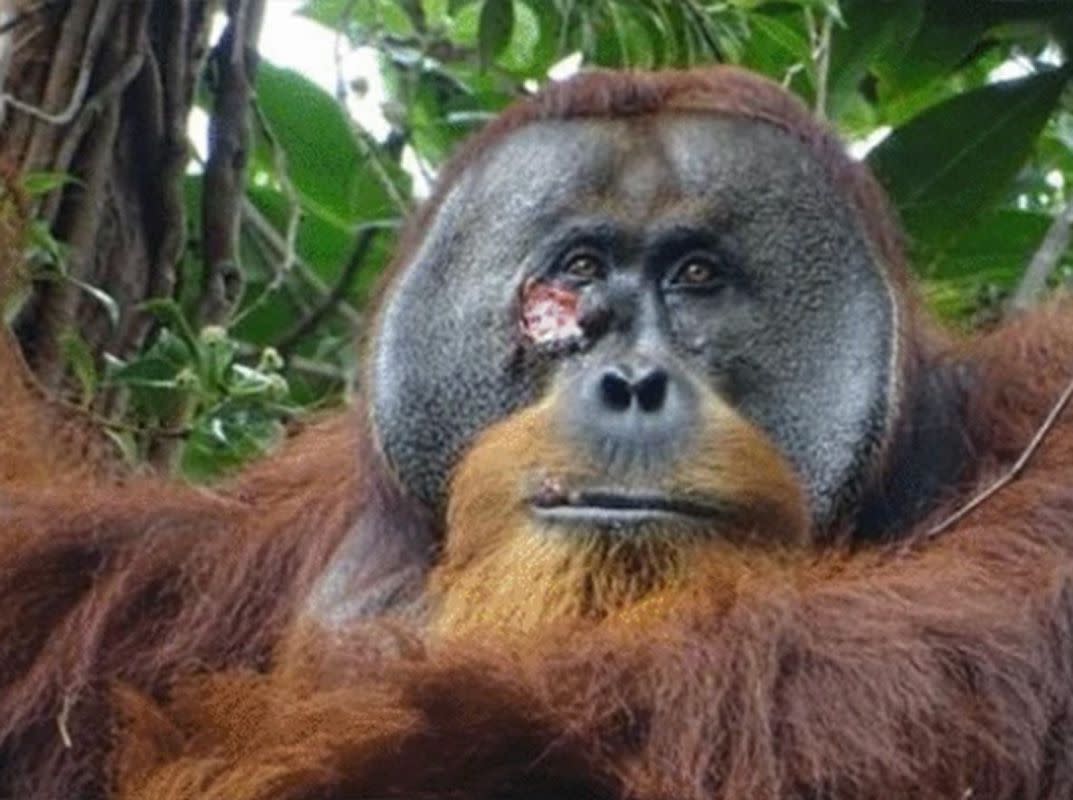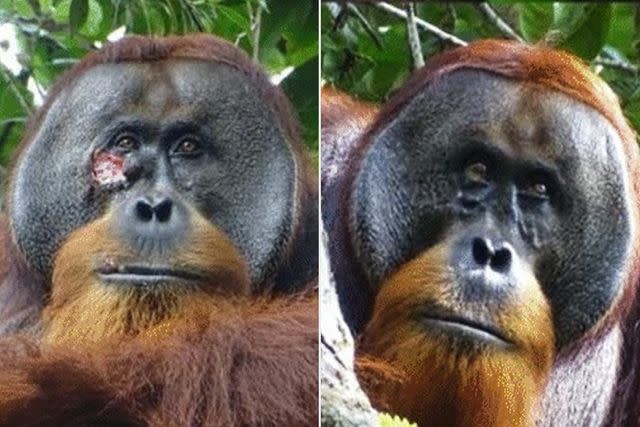Scientists Shocked After Orangutan Heals Injury with Medicinal Plant — a First-Documented Incident for Wild Animals
Named Rakus, the wild orangutan living in Indonesia used a plant known to accelerate healing and prevent infection

Scientific Reports
Rakus the orangutanA male orangutan with a facial wound surprised scientists in Indonesia after he chewed leaves from a plant and used the resulting juice for pain relief and the chewed leaves as a topical treatment.
In their findings published in Scientific Reports on May 2, researchers said this is the first documented case of “active wound treatment with a plant species known to contain biologically active substances by a wild animal.”
Named Rakus, the Sumatran orangutan living in Indonesia’s Gunung Leuser National Park sustained an injury that caused an open wound on his right cheek sometime in June 2022.
“Three days after the injury, he selectively ripped off leaves of a liana with the common name Akar Kuning (Fibraurea tinctoria), chewed on them, and then repeatedly applied the resulting juice onto the facial wound,” the researchers wrote. “As a last step, he fully covered the wound with the chewed leaves.”
They observed Rakus for months until the wound fully healed.

Scientific Reports
Rakus the orangutan before (left) and after his facial wound healedRelated: Meet the ‘Chief Dog Officer’ on Royal Caribbean’s New Ship — a Puppy Named Rover
Liana plants — which “are used in traditional medicine to treat various diseases, such as dysentery, diabetes and malaria” — are known to have antibacterial and anti-inflammatory effects that heal and prevent infection.
“This possibly innovative behavior presents the first systematically documented case of active wound treatment with a plant species known to contain biologically active substances by a wild animal and provides new insights into the origins of human wound care,” the researchers wrote of Rakus.
The study was conducted at the Suaq Balimbing research area in Indonesia, where scientists have been studying orangutans as part of their “non-invasive, almost exclusively observational research” since 1994.
Never miss a story — sign up for PEOPLE's free daily newsletter to stay up-to-date on the best of what PEOPLE has to offer, from celebrity news to compelling human interest stories.
“Up to date, in 21 years and 28,000 observation hours, we never observed any other orangutans at Suaq using Fibraurea tinctoria to treat their wounds,” added the researchers in the study, led by Caroline Schuppli and Isabelle Laumer.
Related: Police Dog Stabbed and Airlifted to Hospital After Standoff with 'Suicidal Man'
“The present study may thus present the first report of active wound management with a biological active substance in a great ape species and provides new insights into the existence of self-medication in our closest relatives and in the evolutionary origins of wound medication more broadly,” the scientists wrote.
For more People news, make sure to sign up for our newsletter!
Read the original article on People.
